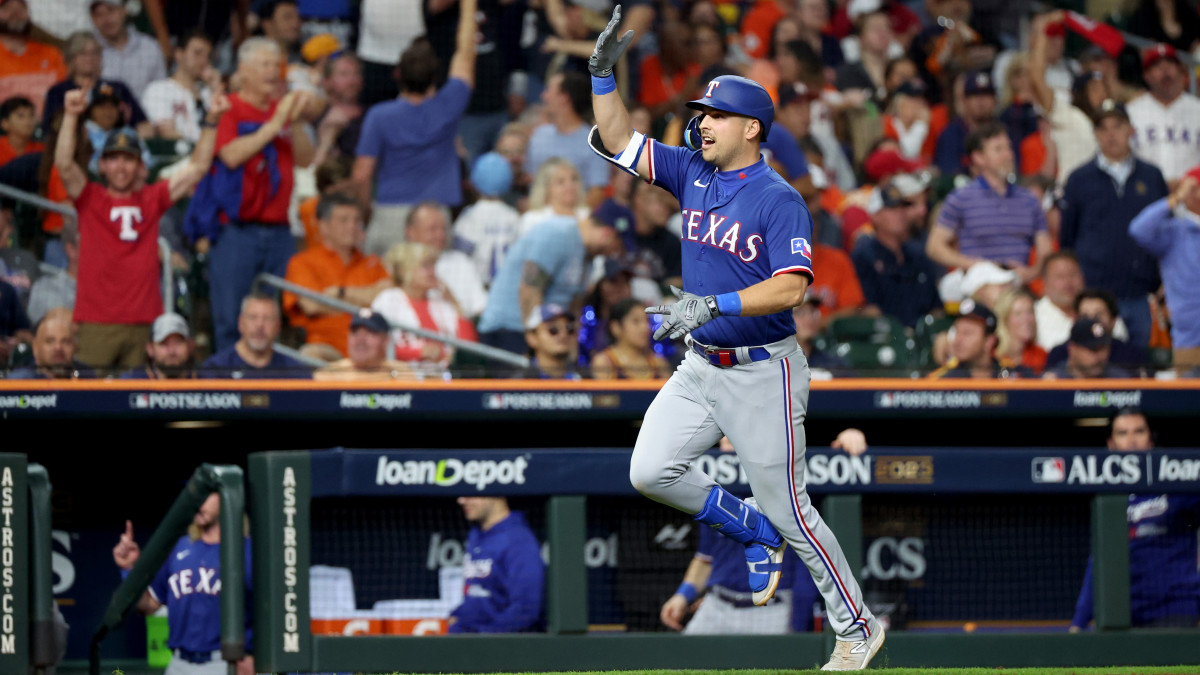Diamondbacks, Rangers Ride ‘Will to Win’ to the World Series

The question of how Nathaniel Lowe has seen the Rangers change is almost too big for him to answer.
This is his third season in Texas since being traded from Tampa Bay. That’s enough to make the first baseman one of the longest-tenured members of this roster. The team has turned over almost entirely since his first season, in 2021. That first Rangers team Lowe played with lost 102 games. This one is in the World Series. They have a new executive (Chris Young) who convinced an old manager (Bruce Bochy) to come out of retirement for one last shot at steering a team to a championship. And they’ve helped usher in a new crop of players, a mix of big free agents, splashy trade acquisitions and recently promoted rookies. Lowe has just five teammates who can remember all the losing of ’21. (And that count is generous, as it includes reliever José Leclerc, who missed the entire season rehabbing from surgery.) Yet the biggest change, Lowe says, was not on the field or from the front office or in the standings.
It was in the clubhouse. For a 7 p.m. game in the regular season, he says, players would often show up before noon. For some, that was part of their routine, but for others, it was to play cards or challenge one another at Golden Tee. It was simple: They wanted to come to work and hang out with one another each day. And the resulting difference was more palpable to Lowe than the turnover on the roster or the change in their record.
“The guys just want to be here,” Lowe says. “That’s what we needed—to come here and play in this environment in front of this fan base and have the potential to be in this position now.”
Watch MLB with Fubo. Start your free trial today.

It’s been perhaps the most oft-cited statistic leading up to this World Series: Both the Rangers and Diamondbacks lost more than 100 games in 2021. Now, two years later, each has found a way to reverse its fortunes. Their journeys have not exactly been parallel. But there’s a common thread here. For the players who remain from that bitter stretch two seasons ago—on both sides—this playoff run has been especially sweet.
The Diamondbacks have not seen as much change in the last two years as the Rangers. Their leadership remains the same under general manager Mike Hazen and skipper Torey Lovullo. They’ve retained more of their core. And, perhaps accordingly, they were a bigger surprise this year: They never had a flashy, statement-making offseason like the Rangers did heading into 2022, when they spent hundreds of millions to carve a better future out of their listless past. Instead, Arizona benefited from promoting young talent, making a few modest upgrades around the margins and experiencing the simple power of better luck. (They finished with a winning record despite their negative run differential.) The Diamondbacks’ change may not have been as dramatic as the Rangers’. But it seemed just as far-reaching.
“The most different feeling for me is the perspective that offers when you lose that many games in a season,” says Arizona first baseman Christian Walker. “Now being in a winning culture and having a winning season, it’s being able to channel that and buy into that and understand, like, Hey, we’ve earned this. This is who we are. This isn’t an accident. We know what it feels like to lose all those games. … We earned those losses. But you have to be able to buy into earning the wins as well.”
The Diamondbacks remaining from 2021 include their two best starters, Zac Gallen and Merrill Kelly, along with standouts from the lineup such as Walker and Ketel Marte. Yet the fabric of the team seems entirely different.
“Two years ago, there were some points where you showed up to the field and just expected to lose,” says Diamondbacks reliever Joe Mantiply, another holdover from 2021. “During some of those losing streaks, we lost games pretty much any way you could think about it. This year, it feels like the opposite. We’re finding ways to win. … The meshing of the clubhouse is way better than it was. Everybody has confidence in one another.”
The result is a World Series pairing that is perhaps not as flashy as other potential matchups—two wild-card teams that were cellar-dwellers in the not-so-distant past. That’s received its share of criticism. But, naturally, the players view it differently. They see it as proof that a team can rise quickly with the right investment, à la Texas, or the right group hitting their stride at the right time, à la Arizona, and make a deep run.
“For teams that will continue to lose 100 games in a row for multiple seasons, it’s kind of embarrassing for the sport,” Lowe says. “To have two groups that were in that position and now are the two groups in the World Series—it shows that the will to win is important.”
Which is something both teams can agree on.
“It’s a cool thing to be able to have faith for fans,” says Diamondbacks outfielder Pavin Smith. “Even when your team isn’t doing well—that turnaround can be so quick.”
